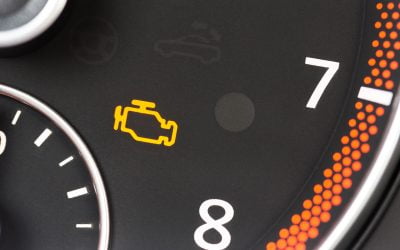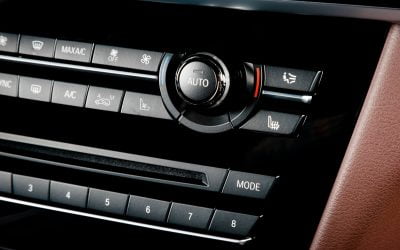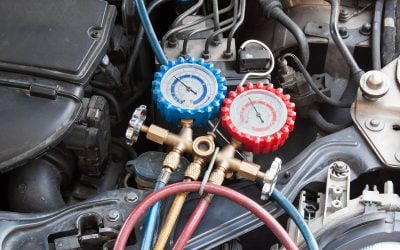Why Is My Engine Sputtering Or Misfiring?
If your car is sputtering or misfiring, it usually means that there is an issue that needs addressing as soon as possible. It may feel like a minor problem, but a misfiring or sputtering engine can reflect a much deeper issue which will only exacerbate and become a more expensive mechanical repair the longer you leave it.
There are a number of potential root causes of sputtering or misfiring, but the usual suspects are related either to the fuel system, spark plugs or vacuum systems. Sputtering is less frequently caused by a problem with your car’s electricals or computer system, but if an electrical component fails or a wire is chewed through it can definitely cause sputtering or misfiring. Timing issues can also cause sputters and misfires. If your car has had its timing thrown out, it can cause serious damage to engine components such as pistons, valves, bearings and connecting rods very quickly.
Symptoms of a misfiring engine
Even if the signs seem mild, if you have observed any of the following symptoms whilst driving or idling, your engine is likely misfiring and requires investigation.
- Chugging or intermittent power while driving
- Vibrating (especially a concern if vibrating at low RPM)
- Car stalling out or feeling like it’s on the verge of stalling
- Engine light illuminating or flashing
- Smell of fuel
What are the most common causes for sputtering or misfiring?
Some of the most common causes for engine sputtering or misfiring are:
Worn or dirty spark plugs
Spark plugs are responsible for ignition of the air and fuel mixture inside your car’s cylinders, so sputtering can tell you that your spark plugs may need replacing. Spark plugs are relatively inexpensive to replace, however if they are excessively dirty or covered in oil, it may be a sign of a bigger issue.
Clogged or faulty fuel system
Sputtering can also indicate a problem with the fuel filter, fuel pump, fuel lines, injectors or a combination. If any one of these components becomes dirty, clogged or broken, your car won’t be able to supply the correct amount of fuel to your engine. This results in the engine running either too lean or rich – causing issues like sputtering and misfiring.
Dirty mass airflow sensor
The mass airflow sensor (also known as a MAF sensor) measures how much air is making its way into the intake manifold of your engine. If your MAF sensor gets dirty or malfunctions, it will likely supply incorrect information to the computer. This causes the computer to input either too much or too little fuel into the combustion chamber, which causes your engine to sputter.
Vacuum Leaks
Your car’s engine uses vacuums to actuate components and provide sensor readings. A vacuum leak can introduce more air into the combustion chamber and cause the air/fuel mixture to become lean – causing the engine to back fire. A vacuum leak can have a number of different causes, but is usually caused by either a cracked/disconnected vacuum hose or a leaking gasket (usually between the intake manifold and the engine head). A visual inspection of the vacuum hoses & relevant gaskets can usually identify the majority of vacuum leaks.
Will Misfiring Or Sputtering Damage My Car?
A lot of these issues can result in a lean air/fuel mixture which causes the misfires. A lean air fuel mixture means not enough fuel is going into the combustion chamber. Under heavy acceleration, a lean mixture can cause the combustion chamber to overheat, possibly damaging internal engine components such as pistons, valves, bearings, connecting rods or the engine block itself. If any of these components fail, your engine will need expensive repairs, or in many cases a replacement.
While a lot of these issues may be easy to fix, there are usually underlying problems that initially caused these issues. Without tackling these underlying problems, these components may fail again shortly after being replaced. For example: a broken fuel pump is relatively easy to diagnose and cheap to replace, however a rusty fuel tank may have caused the fuel pump to fail prematurely. Putting a new fuel pump back into a car with a rusty fuel tank will likely cause it to fail prematurely too.
It’s reasons like this that having your car inspected and repaired by an experienced mechanic is always the best option. They have the knowledge and skills to identify these issues and fix them before they cause damage or issues further down the track. Regularly scheduled maintenance can stop these issues from occurring by replacing and servicing components at specified intervals.
Is it time to get your car checked?
A sputtering or misfiring engine is almost always a warning for a more severe problem. If you’ve noticed any of the above symptoms, a trained mechanic will be able to help you resolve these issues before they become a bigger problem down the track. Contact Australian Mechanical on 07 3356 1538 today to have one of our experienced technicians quickly get your car back to full health.
Read More Posts
My Check Engine Light Is On, What Do I Do?
If you’re driving your car and the check engine light suddenly pops up, it can be a bit of a scary experience.
How We Test Your Car Air Conditioning For Leaks
We use environmentally friendly leak detection methods to find & fix air conditioning leaks.
How To Tell if Your Car Aircon Needs a Regas
Is your car’s air conditioner not as cold as it used to be? Learn how to tell if your car aircon needs a regas.
Call us on 07 3356 1538
Book your next service or repair today and experience our honest, knowledgeable and friendly service.



